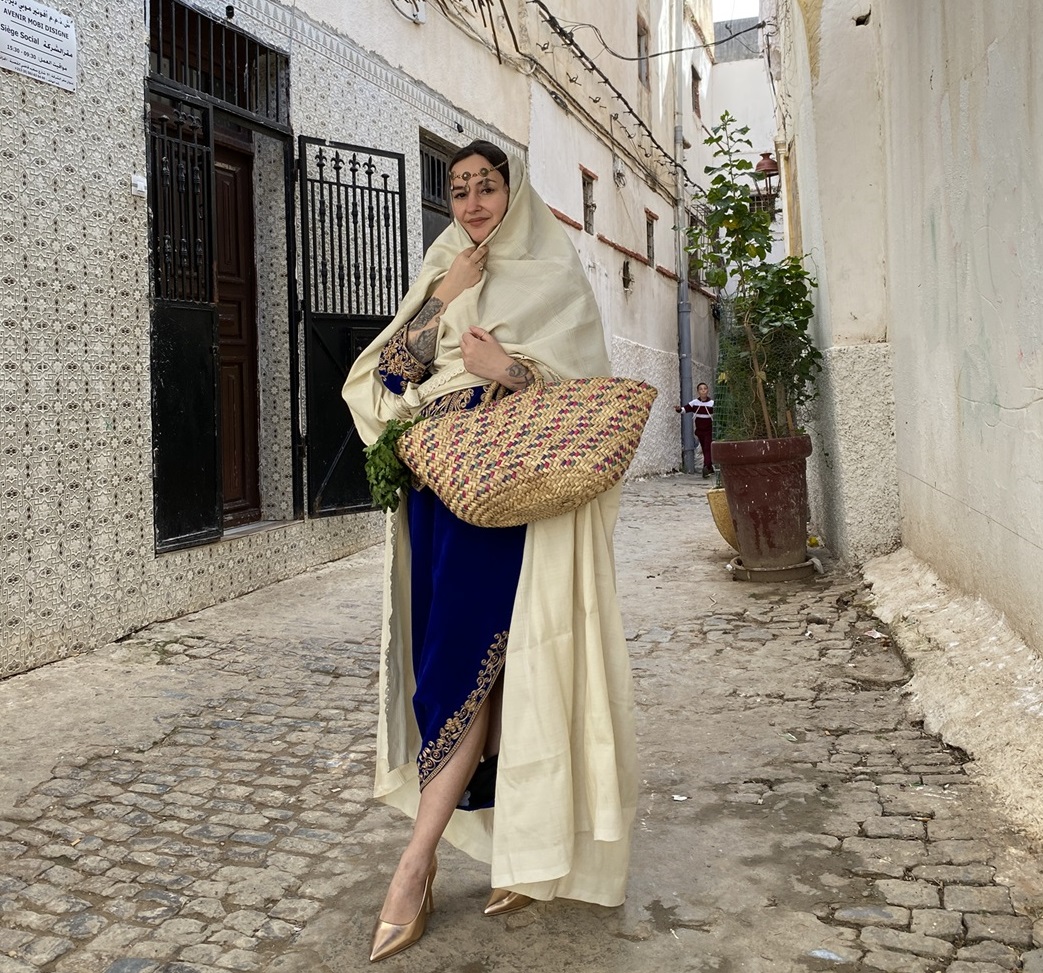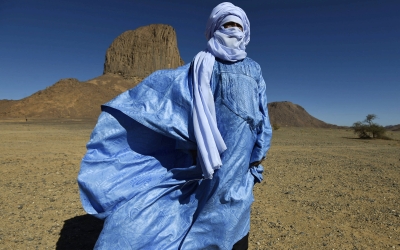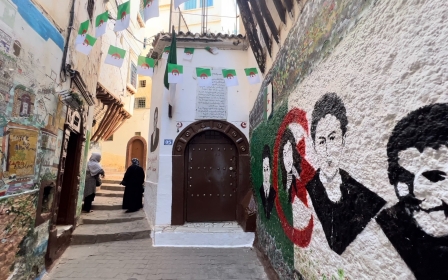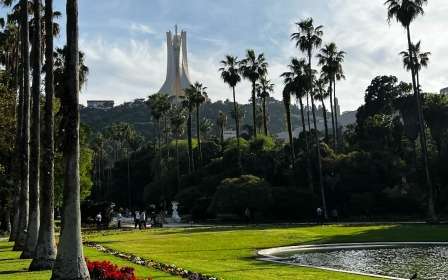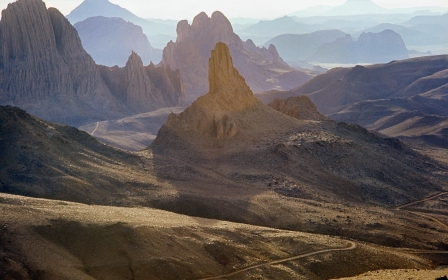'The mentality is changing': The awakening of Algeria's tourism industry
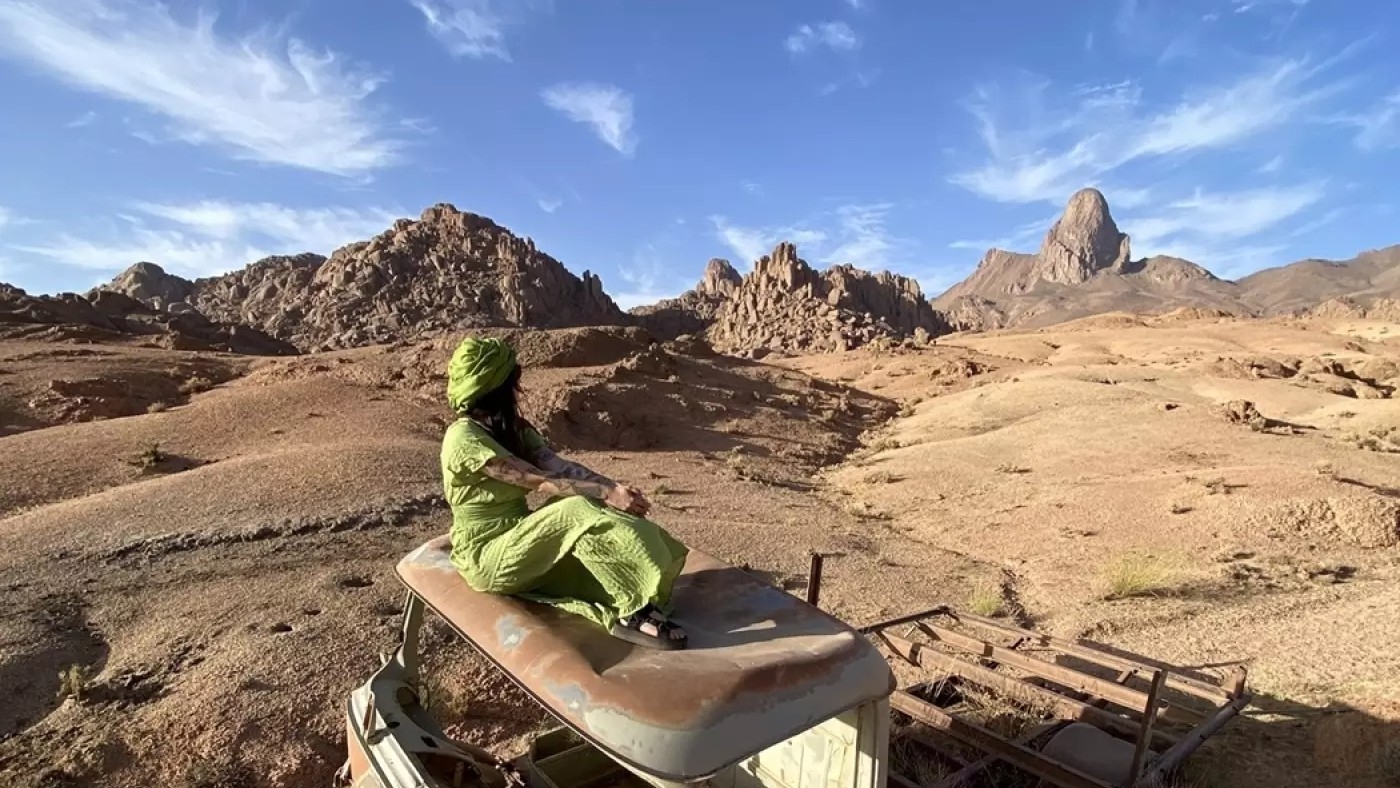
"Unforgettable." That is how Laura Ioana Isac, a 33-year-old globetrotter from Romania, described her trip to Algeria. She visited the North African country last April for 18 days, exploring eight cities and venturing into the desert.
Algeria had been on Isac’s travel bucket list for years. Its lack of popularity as a tourist destination only added to its appeal.
"Algeria caught my attention years ago as the largest African country and for being less touristy, primarily due to the visa process. I searched online but found limited blogs or vlogs about it. However, the few I did find impressed me with the country’s diversity and beauty," she told Middle East Eye.
Isac's curiosity about Algeria grew further when she met two Algerian women during a trip to Senegal. They provided her with more information about the country and encouraged her to take the leap.
They sent her an invitation letter, which she included in her visa application, and helped her plan the trip before welcoming her to Algiers.
New MEE newsletter: Jerusalem Dispatch
Sign up to get the latest insights and analysis on Israel-Palestine, alongside Turkey Unpacked and other MEE newsletters
From the capital to the southern city of Tamanrasset, Isac had the opportunity to explore a variety of places.
"[Algeria] has everything: turquoise seas with beautiful beaches, cities with stunning architecture and history, vast deserts and mountains. The people are kind and it’s very affordable," she said.
"I don’t speak Arabic or French - only a few words and sentences - but this wasn’t a problem. Most young people I met could speak English, and even when they couldn’t, we managed to communicate in a non-verbal way," she recalled.
Beyond the cultural diversity and varied landscapes, Isac was most struck by the people, whom she described as "the essence of Algeria".
"One day, we went to the Kasbah [the old city of Algiers], where I wore the Karakou and the Haik. People gave us keys to rooms so I could put on those traditional clothes for a photo shoot. Others stopped to help, give compliments and take pictures. There were lots of smiles and welcomes," she told MEE.
"This trip taught me the importance of human connections and how travel can break down stereotypes and build bridges between cultures. The kindness of strangers in Algeria left a lasting impression on me, reinforcing the idea that hospitality is a universal language," Isac reflected.
She documented every detail of her trip on her Instagram account, where she has over 30,000 followers. Reels and photos show the traveller strolling through the streets of Algeria in traditional clothing, her tattoo-covered arms visible through them - a striking contrast that did not go unnoticed.
"I felt safe, with people often greeting me with welcome or marhaba [hello]. The only uncomfortable aspect was the catcalling, which occurred even when I was not alone. Every woman I met in Algeria experienced it, even those who wore hijabs," she said.
'Algerians don't see us as walking wallets'
Scenes of tourists exploring the streets of Algeria are becoming more common, especially as globetrotters such as Isac share their experiences on social media through engaging content.
Located between the popular tourist destinations of Morrocco and Tunisia, Algeria has long been known for its relative insularity. Unlike its neighbours, the country does not get a lot of tourists knocking at its door.
This is partly due to its visa process and the lasting effects of a decade-long civil war in the 1990s. Recently, however, Algeria has begun to heal its scars and enhance its touristic image to attract more visitors.
According to its tourism ministry, Algeria recorded an influx of 800,000 tourists during the first trimester of 2024. Last year, the country welcomed 3.3 million tourists, including 2.2 million foreign tourists and 1.1 million from the Algerian diaspora.
The government aims to welcome more than 12 million foreign visitors by 2030.
'[Algeria] has everything: turquoise seas with beautiful beaches, cities with stunning architecture and history, vast deserts and mountains. The people are kind and it’s very affordable'
- Laura Ioana Isac, Romanian globetrotter
To reach this goal, Algeria’s government has introduced several measures, including exempting foreign tourists from visa requirements for visits to the south and offering automatic visa renewals on arrival.
While these changes are seen as a significant step towards easing the burden on tourists, they currently only apply to those visiting the Algerian desert with government-accredited agencies.
To explore the rest of the country, tourists must still apply for a visa from their country of residence, providing standard documents like bank statements and hotel and flight reservations.
But what often discourages potential visitors are the rumours of frequent visa refusals.
Despite these concerns, an increasing number of tourists are undeterred, with some even reporting a surprisingly smooth process.
"Tourists are immediately charmed by the people. They are surprised by the human connection they experience in Algeria. They are not objectified as they are in neighbouring countries," Aissam Slimani, a 28-year-old local guide from Algiers, told MEE.
"Morocco, Egypt and Tunisia rely heavily on tourism for their local economies. In Algeria, we live off oil. We see tourists as guests who must not be mistreated or have a bad experience," he added.
"A French visitor once told me that in other places, they are seen as walking wallets, which is not the case in Algeria. On the contrary, tourists tend to eat for free as many restaurants refuse to charge them. Many are also invited over for a meal by locals," he said.
A graduate in architecture, Slimani has been working as a local guide since 2018.
In October 2022, he founded his agency, Vizitina, which provides guided visits around Algiers and neighbouring cities such as Tipaza, 61km from the capital and a main tourist attraction due to its Roman ruins that were classified as a Unesco World Heritage Site in 1982.
'Return-to-roots tourism'
Thanks to his command of three foreign languages, namely French, English and Spanish, Slimani quickly gained popularity as a guide among tourists. His agency’s Instagram page boasts nearly 20,000 followers.
Yet, foreign tourists are not his only clients. Slimani points out a growing interest in Algeria tourism among Algerians themselves.
"Interest in domestic tourism arose during the Covid-19 pandemic that maintained the borders closed for a year and a half, leaving Algerians without the option to travel abroad for vacations," he explained.
Slimani also notes another emerging trend, which he refers to as "return-to-roots tourism".
"More than 7 million Algerians live abroad, which represents a huge potential for tourism in Algeria because these are people who want to return to discover their origins and their culture. It’s a tourism that reconnects with roots," he said.
The Algerian government also recognises the significance of this type of tourism as it tries to attract the diaspora abroad as much as foreign tourists.
Last May, the Ministry of Foreign Affairs and the National Community Abroad announced that members of the Algerian diaspora could now enter Algeria simply by presenting their Algerian identity card.
The country also welcomed hundreds of children from the diaspora for summer holidays in a joint initiative between the Grand Mosque of Paris and the Algerian Ministry of Youth and Sports. A similar programme was held in April.
As some members of the diaspora develop a growing interest in tourism within Algeria, others see this boom as a unique opportunity for investment.
One such individual is Omar Benbahlouli, a 43-year-old dual citizen born in France. In December 2023, he opened the guesthouse La Rose des Sables (the desert rose) in Bou Saada, located at the gateway to the Algerian desert.
Benbahlouli admitted that he did not anticipate the success of his guesthouse, nor did he realise the tourist appeal of Bou Saada until after the opening.
"I did not know tourists were attracted by Bou Saada and I did not believe the project of a guesthouse would succeed. I was encouraged by acquaintances without being really motivated, and I was pleasantly surprised by the outcome," he told MEE.
The guesthouse has since enjoyed considerable success. "Half of the clients are locals, then dual citizens and the rest are foreigners. I’ve received Chinese, Americans, Saudis, native French people and Egyptians," Benbahlouli shared.
Despite his success, Benbahlouli points out a lot of loopholes that need to be addressed for Algeria to become a major tourist destination.
"As a person who has travelled a lot, I notice that Algerians are hospitable, but they don’t have a tourism expertise yet. I travelled around the country and met some hotel staff who seemed untrained on how to serve a customer properly," he said.
‘Tourists are immediately charmed by the people. They are surprised by the human connection they experience in Algeria. They are not objectified as they are in neighbouring countries’
- Aissam Slimani, local guide
"I must admit this has been changing in recent years. The mentality is changing," he added.
For Riyad, a 35-year-old entrepreneur from Tizi Ouzou, a successful take-off in Algeria's tourism industry requires people to recognise tourism as a vital source of income that contributes to the national economy.
"How can it be profitable for our economy that a tourist comes, eats for free and even leaves with gifted souvenirs?" he questioned in an interview with MEE.
Meriem, a 22-year-old marketing student, also believes that "Algeria is not ready for international tourism and all the cultural changes it will bring, such as prostitution".
"That is why we should promote domestic tourism that will profit Algerians and the diaspora abroad," she told MEE.
Abderahman Belgat, the president of the World Association for Hospitality and Tourism Education and Training (Amforht), advocates for the development of sustainable tourism that benefits locals while also attracting foreign visitors.
Belgat, who is Algerian, believes the country will never experience overtourism or its associated negative impacts.
Speaking at a conference in June at the headquarters of the Algerian newspaper El Moudjahid, Belgat explained that foreigners are not drawn to Algeria for beach tourism, which is often the type that leads to environmental degradation.
"We have the most degraded coastline in the Mediterranean basin among 22 countries. [There are] too many anarchic constructions with hideous architecture, without urban planning and research," he said.
At the same conference, expert Said Boukhelifa echoed Belgat's sentiments, asserting: "There will never be mass tourism in Algeria."
Instead, Boukhelifa proposed focusing on developing high-end tourism activities, such as archaeological tours, Saharan expeditions and hunting tourism.
Middle East Eye delivers independent and unrivalled coverage and analysis of the Middle East, North Africa and beyond. To learn more about republishing this content and the associated fees, please fill out this form. More about MEE can be found here.


